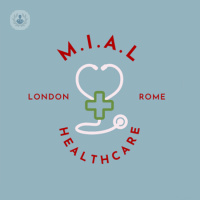What is a comorbidity?
A comorbidity is a primary disease or condition that co-occurs with but is often independent of, another disease or disorder. There are some conditions that are more likely than others to be comorbid with one another. As well as being a term that is used broadly in medicine, comorbidity is frequently referred to in psychology. In the context of psychology, comorbidity refers to more than one mental disorder that exists alongside a primary diagnosis, or the reason that a patient is referred to in the first place. An example of this in psychology would be a patient who may have schizophrenia combined with a personality disorder. This may be because the doctor is not able to tell much of a difference between the two conditions.

What are examples of comorbidity in psychology?
The following examples are commonly comorbid:
Depressive disorders – these often coexist with conditions such as post-traumatic stress disorder, substance abuse and serious illnesses.
Anxiety disorders – these disorders can be combined with schizophrenia, bipolar disorder and post-traumatic stress amongst others.
Schizophrenia – this condition is comorbid with depression, anxiety and addiction.
Addiction – patients develop other psychological disorders as a result of their addictions.
What are multiple comorbidities?
Multiple comorbidities, or multimorbidity, means having more than two illnesses or diseases at the same time. It's common and increases the complexity of disease management in patients.
How are comorbidities related to mental health?
When comorbidities are related to mental health, it's when there are mental and physical disorders within the same person. This is despite the chronological order in which they have occurred or the causes.

Mental health conditions that manifest as a comorbidity include:
- Eating disorders
- Substance abuse
- Anxiety disorders
Is comorbidity related to schizophrenia?
Yes. It's very common that conditions such as depression, OCD, panic and substance abuse are disorders that can co-exist with schizophrenia.
Is comorbidity related to anxiety and depression?
The most common comorbidities with anxiety are:
- Depressive disorders, and;
- Panic disorders.

It's also common to see stress-related disorders occur with depression.
How are comorbid illnesses treated?
The combination of conditions affects case management for treatment in patients who experience comorbidity. There is no one size fits all approach to the condition.
01-09-2014 05-26-2023Comorbidity
Dr Mashkur Khan - Internal medicine
Created on: 01-09-2014
Updated on: 05-26-2023
Edited by: Karolyn Judge
What is a comorbidity?
A comorbidity is a primary disease or condition that co-occurs with but is often independent of, another disease or disorder. There are some conditions that are more likely than others to be comorbid with one another. As well as being a term that is used broadly in medicine, comorbidity is frequently referred to in psychology. In the context of psychology, comorbidity refers to more than one mental disorder that exists alongside a primary diagnosis, or the reason that a patient is referred to in the first place. An example of this in psychology would be a patient who may have schizophrenia combined with a personality disorder. This may be because the doctor is not able to tell much of a difference between the two conditions.

What are examples of comorbidity in psychology?
The following examples are commonly comorbid:
Depressive disorders – these often coexist with conditions such as post-traumatic stress disorder, substance abuse and serious illnesses.
Anxiety disorders – these disorders can be combined with schizophrenia, bipolar disorder and post-traumatic stress amongst others.
Schizophrenia – this condition is comorbid with depression, anxiety and addiction.
Addiction – patients develop other psychological disorders as a result of their addictions.
What are multiple comorbidities?
Multiple comorbidities, or multimorbidity, means having more than two illnesses or diseases at the same time. It's common and increases the complexity of disease management in patients.
How are comorbidities related to mental health?
When comorbidities are related to mental health, it's when there are mental and physical disorders within the same person. This is despite the chronological order in which they have occurred or the causes.

Mental health conditions that manifest as a comorbidity include:
- Eating disorders
- Substance abuse
- Anxiety disorders
Is comorbidity related to schizophrenia?
Yes. It's very common that conditions such as depression, OCD, panic and substance abuse are disorders that can co-exist with schizophrenia.
Is comorbidity related to anxiety and depression?
The most common comorbidities with anxiety are:
- Depressive disorders, and;
- Panic disorders.

It's also common to see stress-related disorders occur with depression.
How are comorbid illnesses treated?
The combination of conditions affects case management for treatment in patients who experience comorbidity. There is no one size fits all approach to the condition.


Multiple morbidities: how do you treat a patient with more than one condition?
By Dr Mashkur Khan
2025-01-28
Leading London-based consultant physician, Dr Mashkur Khan explains how complex patients with more than one condition are managed, and how they face the dilemma of whether medication is helping the patient or making them worse. See more


Perioperative care of older adults
By Dr Dhanupriya Sivapathasuntharam
2025-01-28
The perioperative care of older adults requires special considerations to address their unique physiological and psychological needs. As people age, they often develop comorbidities and functional limitations that can complicate surgical procedures and recovery. Understanding the principles of perioperative care for older patients can help ensure better outcomes and reduce the risk of complications. Here to tell us all about it is highly respected consultant physician and geriatrician Dr Dhanupriya Sivapathasuntharam. See more
Experts in Comorbidity
-
Dr Mashkur Khan
Internal medicineExpert in:
- Dementia
- Comorbidity
- Syncope
- Fluctuating blood pressure
- Autoimmune diseases
- Geriatric medicine
-
-
Dr Sam Qureshi
GeriatricsExpert in:
- Instability and falls
- Stroke
- Comorbidity
- Transient ischaemic attack (TIA)
- Geriatric medicine
-
Dr Dhanupriya Sivapathasuntharam
GeriatricsExpert in:
- Geriatric medicine
- Instability and falls
- Osteoporosis
- Dementia
- Comorbidity
- Memory disorder
-
Dr Luigi De Michele
Internal medicineExpert in:
- Geriatric medicine
- Comorbidity
- Weight loss
- Clinical testing
- Chronic fatigue
- Cancer screening
- See all

MIAL Medici Italiani A Londra
MIAL Medici Italiani A Londra
9 Harley Street, London
No existe teléfono en el centro.
By using the telephone number provided by TOP DOCTORS, you automatically agree to let us use your phone number for statistical and commercial purposes. For further information, read our Privacy Policy
Top Doctors

Cleveland Clinic London Hospital
Cleveland Clinic London Hospital
33 Grosvenor Place, SW1X 7HY
No existe teléfono en el centro.
By using the telephone number provided by TOP DOCTORS, you automatically agree to let us use your phone number for statistical and commercial purposes. For further information, read our Privacy Policy
Top Doctors

London International Patient Services (LIPS)
London International Patient Services (LIPS)
5 Devonshire Place, W1G 6HL
No existe teléfono en el centro.
By using the telephone number provided by TOP DOCTORS, you automatically agree to let us use your phone number for statistical and commercial purposes. For further information, read our Privacy Policy
Top Doctors
-
MIAL Medici Italiani A Londra
9 Harley Street, London , W1G Marylebone LondonExpert in:
- Cardiology
- Physiotherapy
- Internal medicine
- Neurology
- Otolaryngology
- Radiology
-
Cleveland Clinic London Hospital
33 Grosvenor Place, SW1X 7HY, Central LondonExpert in:
- Cardiology
- Colorectal surgery
- Minimal access surgery (keyhole surgery)
- Gallbladder surgery
- Diagnostic Imaging
- Ultrasound
-
London International Patient Services (LIPS)
5 Devonshire Place, W1G 6HL, W1G Marylebone LondonExpert in:
- Orthopaedic spinal surgery
- Plastic surgery, reconstructive and aesthetics
- Hand and wrist
- Otolaryngology
- Foot and ankle
- Knee
- See all
- Most viewed diseases, medical tests, and treatments
- Respiratory infection
- Osteoporosis
- Narcolepsy
- Snoring
- Polysomnography (sleep study)
- Alzheimer's disease
- Chronic headache
- Autoimmune diseases
- Joint pain
- Nutrition







